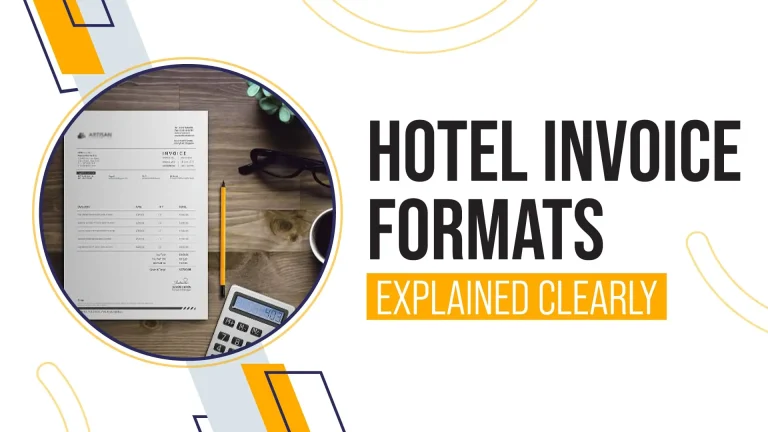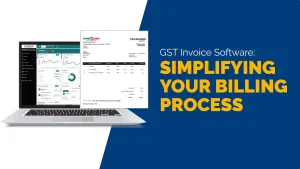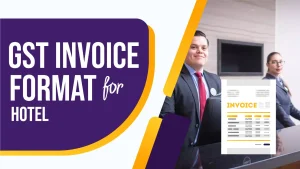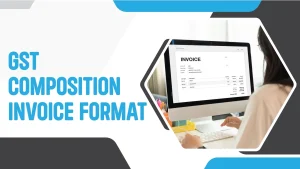Invoices are an essential part of running a hotel business. They not only help in maintaining accurate records of transactions but also play a crucial role in ensuring customer satisfaction and compliance with tax regulations. A well-structured hotel invoice format can simplify your billing process, making it easier for both your staff and your guests. In this blog, we will explore the different aspects of hotel invoice formats, their components, and why they are important for your business.
Understanding Hotel Invoice Formats
Hotel invoice formats are standardized templates used to issue invoices to guests for the services they have availed during their stay. These formats ensure that all necessary information is included in the invoice, making it clear and comprehensive for the recipient. A good hotel invoice format not only facilitates smooth financial transactions but also helps in maintaining transparency and professionalism.
Components of a Hotel Invoice
A hotel invoice typically includes the following components:
- Header: The top section of the invoice usually contains the hotel’s logo, name, address, and contact information. This helps in branding and makes it easy for guests to identify the invoice’s source. It sets the stage for the rest of the document and makes it look official and professional.
- Invoice Number: Each invoice should have a unique number for easy tracking and reference. This is crucial for maintaining records and resolving any future disputes. Unique invoice numbers help in organizing and retrieving invoices when needed, ensuring that no transaction is overlooked or duplicated.
- Date: The date when the invoice is issued should be clearly mentioned. This helps in tracking the timing of transactions and ensures timely payment. It is important for both the hotel and the guest to know the exact date the invoice was created to avoid any confusion regarding payment timelines.
- Guest Information: This section includes the name, address, and contact details of the guest. Having accurate guest information is important for personalized service and record-keeping. It ensures that the invoice is directed to the correct individual or company, facilitating smooth communication and payment processes.
- Stay Details: Details of the guest’s stay, such as check-in and check-out dates, room number, and duration of stay, should be included. This provides context for the charges listed in the invoice. By detailing the stay period and room number, the guest can easily verify the accuracy of the charges against their stay.
- Itemized List of Charges: This is the most detailed part of the invoice. It includes a breakdown of all the charges incurred by the guest, such as room rate, food and beverage, spa services, and any other additional services. Each item should be listed separately with its corresponding cost. An itemized list helps the guest understand exactly what they are being charged for, reducing the likelihood of disputes and promoting transparency.
- Taxes and Fees: Applicable taxes and fees should be clearly mentioned and calculated. This ensures transparency and compliance with local tax regulations. Clearly listing taxes and fees helps in avoiding confusion and ensures that the guest is aware of all additional costs associated with their stay.
- Total Amount: The total amount due, including all charges and taxes, should be prominently displayed. This is the final amount the guest needs to pay. Highlighting the total amount ensures that it stands out on the invoice, making it easy for the guest to identify the final payable amount.
- Payment Terms: Any specific payment terms, such as due date, acceptable payment methods, and late payment penalties, should be included. This helps in setting clear expectations for payment. Detailed payment terms provide clarity on when and how the payment should be made, reducing the chances of late payments or misunderstandings.
- Footer: The footer can include additional information such as thank you notes, promotional messages, or contact information for customer service. Including a footer can add a personal touch to the invoice and provide the guest with useful information or offers.
Importance of Using a Standard Hotel Invoice Format
Using a standard hotel invoice format offers several benefits:
- Professionalism: A well-designed invoice reflects professionalism and attention to detail, which can enhance the guest’s perception of your hotel. Professional invoices contribute to a positive image and build trust with your guests.
- Accuracy: Standard formats reduce the risk of errors by ensuring all necessary information is included and organized in a consistent manner. Consistency in formatting helps in maintaining accurate records and avoiding discrepancies.
- Efficiency: A predefined format speeds up the invoicing process, allowing your staff to focus on other important tasks. Efficient invoicing systems can significantly reduce the administrative burden on your staff, leading to better productivity.
- Compliance: Adhering to a standard format helps in meeting legal and tax requirements, reducing the risk of non-compliance. Ensuring that all necessary tax information is included in the invoice helps in avoiding legal issues and penalties.
- Customer Satisfaction: Clear and detailed invoices help in building trust with your guests, as they can easily understand the charges and feel confident about their payments. Transparency in billing enhances the overall guest experience and encourages repeat business.
Types of Hotel Invoice Formats
Hotel invoices can be categorized into different types based on the nature of the services provided. Here are some common types of hotel invoice formats:
Standard Hotel Invoice
A standard hotel invoice includes all the basic components mentioned earlier. It is used for regular transactions involving room charges, food and beverages, and other common services. This type of invoice is suitable for most guests and covers the standard range of services offered by the hotel.
Detailed Invoice
A detailed invoice provides an exhaustive breakdown of all services availed by the guest. This format is ideal for guests who have utilized multiple services, such as spa treatments, laundry, and room service. It helps in providing a clear understanding of the total charges. Detailed invoices are particularly useful for guests who need to submit detailed expense reports for business purposes.
Proforma Invoice
A proforma invoice is a preliminary bill of sale sent to guests in advance of the services being provided. It outlines the estimated charges for the upcoming stay or event. This type of invoice is often used for corporate bookings and group reservations to give an upfront cost estimate. Proforma invoices help in setting clear expectations and budgets before the actual services are rendered.
Folio Invoice
A folio invoice is an ongoing invoice that tracks all charges incurred by the guest during their stay. It is updated regularly and presented to the guest upon check-out. This format ensures that all charges are accurately recorded and billed. Folio invoices provide a comprehensive record of all transactions, making it easy for the guest to review their expenses at the end of their stay.
Custom Invoice
Custom invoices are tailored to meet specific requirements of the hotel or the guest. These invoices may include personalized messages, special discounts, or unique service packages. Custom invoices help in providing a personalized touch and enhancing guest experience. By offering custom invoices, hotels can cater to the unique needs and preferences of their guests, adding value to their services.
Designing an Effective Hotel Invoice Format
Designing an effective hotel invoice format involves considering various factors to ensure it meets the needs of both the hotel and the guests. Here are some tips for designing an effective hotel invoice format:
Use a Clean and Professional Layout
The layout of the invoice should be clean and professional. Avoid clutter and use sufficient white space to make the invoice easy to read. Use a consistent font and color scheme that aligns with your hotel’s branding. A clean layout enhances readability and ensures that important information is easily accessible.
Include All Necessary Information
Ensure that all necessary information, such as guest details, stay details, itemized charges, and payment terms, is included in the invoice. Double-check for accuracy to avoid any discrepancies. Including all relevant information reduces the chances of misunderstandings and ensures that the guest has all the information they need.
Make It Easy to Understand
Use clear and simple language to describe the charges and services. Avoid using jargon or technical terms that may confuse the guests. Providing a brief description of each charge can help in making the invoice more understandable. Clear communication helps in building trust and ensures that the guest feels confident about their payment.
Highlight Important Sections
Important sections such as the total amount due, payment terms, and due date should be prominently highlighted. This ensures that the guest can easily identify the critical information. Highlighting key sections helps in directing the guest’s attention to the most important details, reducing the likelihood of missed payments or misunderstandings.
Provide Contact Information
Include contact information for your hotel’s billing or customer service department. This allows guests to reach out in case they have any questions or need clarifications regarding the invoice. Providing contact information ensures that the guest can easily get assistance if needed, enhancing their overall experience.
Use Digital Formats
Consider providing digital invoices to your guests. Digital invoices are easy to send and store, and they reduce paper usage, contributing to environmental sustainability. Ensure that the digital invoice is in a widely accepted format such as PDF. Digital invoices offer convenience and flexibility, making it easy for guests to access and manage their invoices.
Hotel Invoice Format Example

Hotel Name
Address, City, State, ZIP
Phone: (123) 456-7890 | Email: info@hotel.com
| Invoice Details | |
|---|---|
| Invoice Number: 12345 | Date: 2024-07-18 |
| Guest Name: John Doe | Guest Address: 123 Main St, Anytown, USA |
| Check-in Date: 2024-07-15 | Check-out Date: 2024-07-18 |
| Room Number: 101 | Contact: (123) 456-7890 |
| Description | Quantity | Unit Price | Total |
|---|---|---|---|
| Room Charges | 3 nights | $100 | $300 |
| Food and Beverage | 2 meals | $50 | $100 |
| Spa Services | 1 session | $70 | $70 |
| Service Tax | $20 | ||
| Tourism Fee | $10 | ||
| Total Amount Due | $500 | ||
Conclusion
Having a well-structured hotel invoice format is crucial for smooth financial transactions and maintaining transparency with your guests. By including all necessary components and designing a clear and professional layout, you can enhance your billing process and ensure customer satisfaction. Whether you opt for a standard, detailed, proforma, folio, or custom invoice format, the key is to keep it simple, accurate, and easy to understand. By doing so, you will not only streamline your operations but also build trust and loyalty with your guests.
Also Read
- How to Ensure Data Security in Your Invoice Management SystemIn today’s digital age, businesses rely heavily on technology to streamline operations and improve efficiency. An invoice management system plays a crucial role in managing financial transactions and maintaining accurate records. However, with the increasing reliance on technology comes… Read more: How to Ensure Data Security in Your Invoice Management System
- GST Invoice Software: Making Billing EasyIn today’s busy world of business, being efficient is super important. One big thing that needs to be super efficient is billing. With new technology, old-fashioned manual billing is out of date and can make a lot of mistakes.… Read more: GST Invoice Software: Making Billing Easy
- GST Invoice Format for HotelIn the hospitality industry, especially for hotels, managing financial transactions is a very important task. One key part of this financial management is creating invoices that follow the rules of the Goods and Services Tax (GST) in India. Having… Read more: GST Invoice Format for Hotel
- GST Composition Invoice FormatThe GST (Goods and Services Tax) Composition Scheme is a straightforward and user-friendly taxation scheme designed for small businesses in India. This scheme reduces the compliance burden for small taxpayers by allowing them to pay GST at a fixed… Read more: GST Composition Invoice Format
- Everything You Should Know About Car Bill InvoiceWhen it comes to car purchases, sales, repairs, or rentals, a car bill invoice is an essential document. This invoice serves as a record of the transaction and provides a detailed account of the services rendered or goods sold.… Read more: Everything You Should Know About Car Bill Invoice
Frequently Asked Questions
What information should be included in a hotel invoice?
A hotel invoice should include the hotel’s name, address, and contact details, as well as the guest’s name, address, and contact details. It should also include the invoice number, date, details of the guest’s stay (such as check-in and check-out dates and room number), an itemized list of charges, applicable taxes and fees, and the total amount due. Additionally, it should state the payment terms, such as the due date and accepted payment methods. This information ensures clarity and helps maintain accurate records for both the hotel and the guest.
Why is it important to use a standard hotel invoice format?
Using a standard hotel invoice format is important because it ensures all necessary information is included and organized in a consistent manner. This reduces the risk of errors, helps in maintaining accurate records, and enhances professionalism. A standard format also facilitates compliance with legal and tax requirements. It makes the billing process more efficient for hotel staff and provides clear and detailed information to guests, which can help in building trust and ensuring customer satisfaction.
How can I make my hotel invoice easy to understand?
To make your hotel invoice easy to understand, use clear and simple language to describe the charges and services. Avoid jargon or technical terms that may confuse guests. Provide a brief description of each charge and use a clean and professional layout with sufficient white space. Highlight important sections such as the total amount due and payment terms. By keeping the invoice straightforward and well-organized, you can ensure that guests can easily understand their charges and feel confident about their payments.
What are the benefits of providing digital hotel invoices?
Providing digital hotel invoices offers several benefits. Digital invoices are easy to send and store, reducing paper usage and contributing to environmental sustainability. They can be accessed and managed conveniently by both the hotel and the guest. Digital invoices also streamline the billing process, making it quicker and more efficient. Additionally, they can be easily integrated with hotel management systems, allowing for better record-keeping and tracking. Overall, digital invoices enhance convenience and efficiency for both the hotel and its guests.
How can I ensure the accuracy of my hotel invoices?
To ensure the accuracy of your hotel invoices, double-check all the information included, such as guest details, stay details, and itemized charges. Use a standardized format to maintain consistency and reduce the risk of errors. Implement a verification process where invoices are reviewed before being sent to guests. Ensure that all taxes and fees are correctly calculated and clearly mentioned. Regularly update your invoicing software or system to ensure it is functioning correctly. By taking these steps, you can minimize errors and maintain accurate records.
What should I do if a guest disputes a charge on their invoice?
If a guest disputes a charge on their invoice, handle the situation professionally and courteously. Review the invoice and the guest’s stay details to verify the accuracy of the charge. Discuss the issue with the guest to understand their concerns and provide any necessary explanations. If an error is found, correct the invoice promptly and issue a revised version. If the charge is correct, explain the details to the guest and provide any supporting documentation if needed. Maintaining clear communication and transparency can help resolve disputes amicably.
Can I customize my hotel invoices for special occasions?
Yes, you can customize your hotel invoices for special occasions. Custom invoices can include personalized messages, special discounts, or unique service packages tailored to the guest’s preferences or the occasion. For example, you might add a congratulatory message for a wedding party or a special offer for a returning guest. Customizing invoices adds a personal touch and enhances the guest experience, making them feel valued and appreciated. Ensure that the customized invoice still includes all necessary components and maintains a professional appearance.
How often should I update my hotel invoice format?
You should update your hotel invoice format regularly to ensure it remains accurate and compliant with any changes in legal or tax requirements. It’s also important to update the format if you introduce new services or make changes to your pricing structure. Regular updates can help maintain the professionalism and efficiency of your billing process. Additionally, consider updating the format based on feedback from guests and staff to ensure it meets their needs and remains easy to understand. Regular reviews and updates can enhance the overall effectiveness of your invoicing system.
What is the difference between a proforma invoice and a regular invoice?
A proforma invoice is a preliminary bill of sale sent to guests in advance of the services being provided. It outlines the estimated charges for the upcoming stay or event, giving guests an upfront cost estimate. A regular invoice, on the other hand, is issued after the services have been provided and includes the actual charges incurred by the guest. Proforma invoices are often used for corporate bookings or group reservations to set clear expectations, while regular invoices are used for final billing and payment collection.
How can hotel invoice formats enhance customer satisfaction?
Hotel invoice formats can enhance customer satisfaction by providing clear, detailed, and accurate information about charges and services. A well-designed invoice reflects professionalism and attention to detail, which can improve the guest’s perception of the hotel. Clear and transparent billing helps build trust and reduces the likelihood of disputes. Customizing invoices for special occasions or adding personalized messages can also enhance the guest experience. By ensuring that invoices are easy to understand and include all necessary information, hotels can improve overall customer satisfaction and encourage repeat business.






